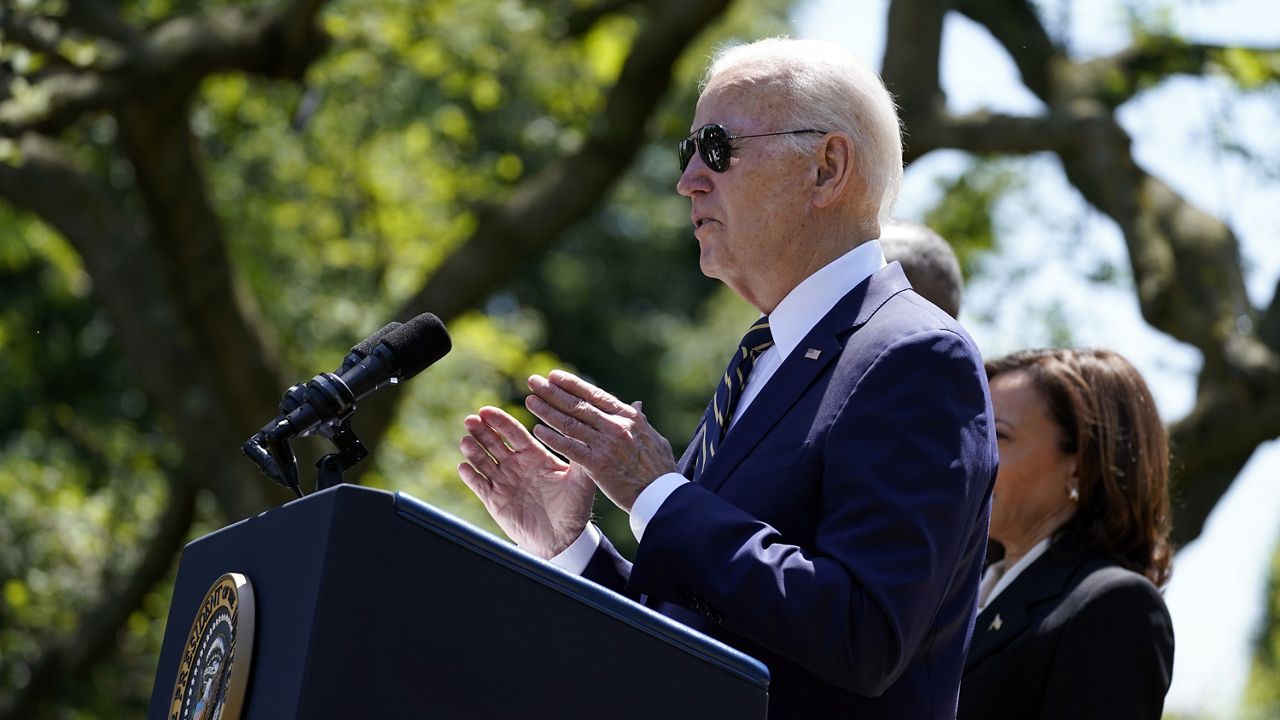President Joe Biden is not unfamiliar with gaffes. He falsely claimed he was in New York during the collapse of the World Trade Center, recently walked away from a stage with Brazilian president Luiz Inácio Lula da Silva without shaking hands for little discernible reason, and has even labeled himself a ‘gaffe machine.’
Last year, when asked in a CBS interview whether the U.S. would defend Taiwan in the event of a Chinese invasion, he bluntly said “Yes,” causing White House staffers to scramble to reaffirm the United States’s commitment to ‘strategic ambiguity.’ This was the fourth time he has made such a statement. It is easy to view his remarks as similarly careless jingoism that may drive the U.S. into a war with China. However, these words are not as reckless as we may think. Intentional or not, his statements are a useful update to the policy of strategic ambiguity in 21st century power politics.
Since China’s civil war ended in 1949, the Chinese government has aimed to regain control of Taiwan as part of their ‘One-China’ policy. For the last few decades, the United States’s response to this objective has been one of strategic ambiguity. The policy leaves as an open question whether the U.S. would defend Taiwan in the event of a Chinese invasion. This is an attempt by the U.S. to ‘have its cake and eat it—to deter China from invading Taiwan by using American military strength without the risk of being drawn into a long, protracted conflict or provoking China excessively. On the whole, this strategy has worked—China has not invaded Taiwan, and the U.S. has not been dragged into a war.
Most people believe Biden’s statements undermine this strategy. There are two dominant theories about what Biden’s statements mean for this policy. The first suggests that his statements are classic Joe Biden gaffes, and thus don’t mean much at all. They are seen as embarrassing unscripted blunders that don’t correspond to a change in the U.S.’s diplomatic stance. The second holds that his remarks represent the United States’s genuine commitment to defend Taiwan, a fundamental overhaul of strategic ambiguity. However, the reality likely lies somewhere in the middle. Biden’s remarks, rather than replacing strategic ambiguity, strengthen it.
To see why this is the case, it is worth considering what makes strategic ambiguity successful. The basic logic behind the policy is that the possibility of American involvement in Taiwan creates a risk of sufficient magnitude to deter China from invading. For this policy to work, two things must be true. Firstly, Chinese officials must genuinely think that the United States would have a high probability of coming to Taiwan’s defense, and secondly, they must think that this aid would be significant enough to make an invasion of Taiwan no longer politically and militarily worthwhile.
Biden’s statements serve to reinforce both elements of the doctrine of strategic ambiguity. Biden suggesting he would defend Taiwan while simultaneously being undercut by the White House creates genuine confusion about whether the U.S. would actually commit itself militarily to the Taiwan strait, in turn raising the cost of Chinese involvement. It also implies that the U.S. might take a large role in the strait.
However, since the White House still proclaimed after his statements that America is committed to the principle of strategic ambiguity, the U.S. has not committed itself to war in the Taiwan strait. This is a good thing—the U.S. shouldn’t actually send troops to Taiwan and drag the world into a potentially cataclysmic great power conflict. The early 21st century wars against Iraq and Afghanistan were disastrous enough as is.
However, what Biden’s statements do further is add to the haze of genuine ambiguity. It helps to prevent unnecessary bloodshed from a Chinese invasion without committing to a conflict that could set the world ablaze. This, from a peace-loving standpoint, is not a bad thing.
As such, Biden’s strategy updates the ‘armed pacifism’ of the U.S.’s Taiwan policy to the 21st century. As the Chinese government becomes more powerful and, as a consequence, more likely to send troops across the strait, this becomes ever more needed. One question in this discussion remains unanswered, however—is this strategy intentional, or am I merely overanalyzing and finding silver linings in Biden’s slip-ups? It’s almost impossible to tell. Nevertheless, it is better for U.S. foreign policy to have these ‘gaffes’ than nothing at all.
Cover image: (Unsplashed)

